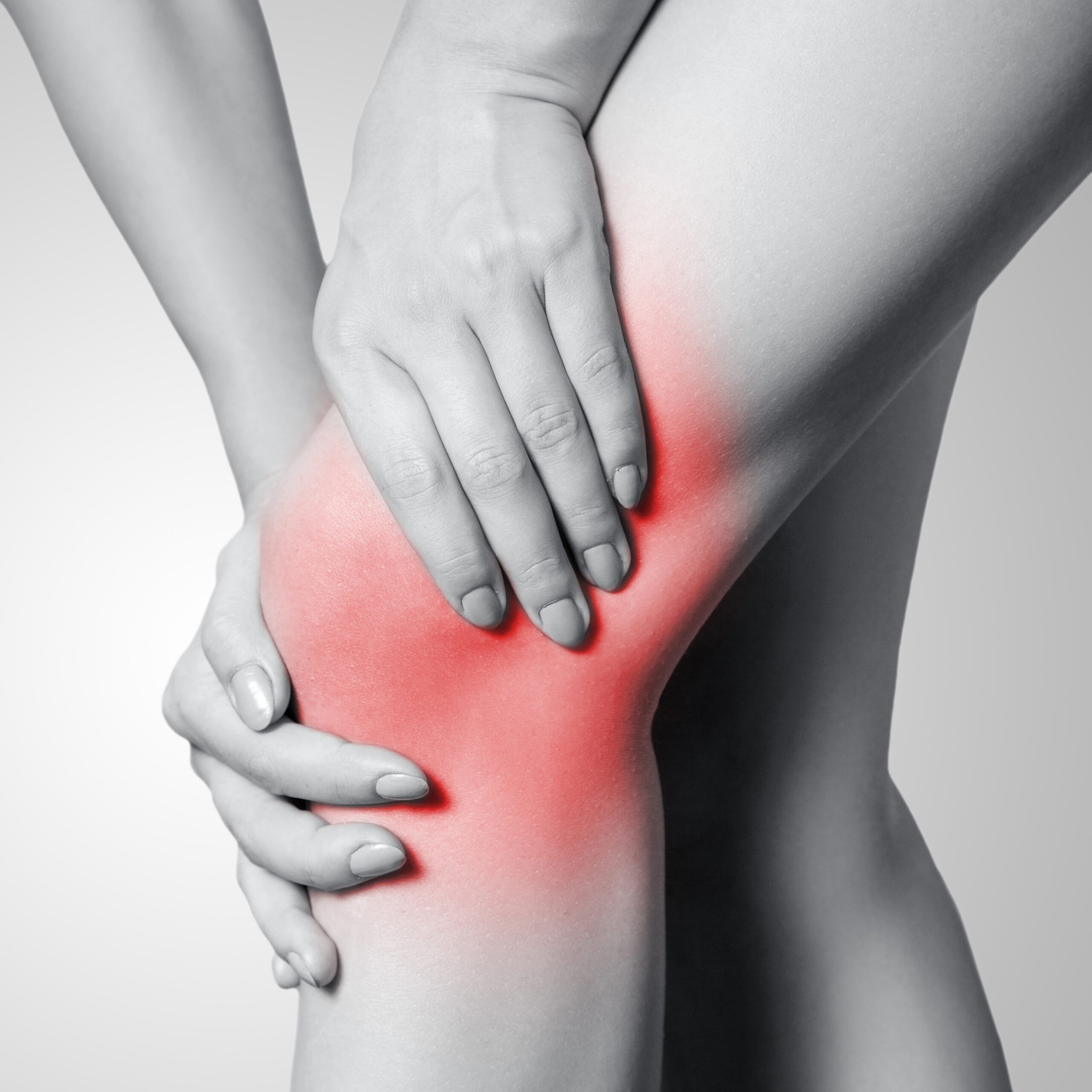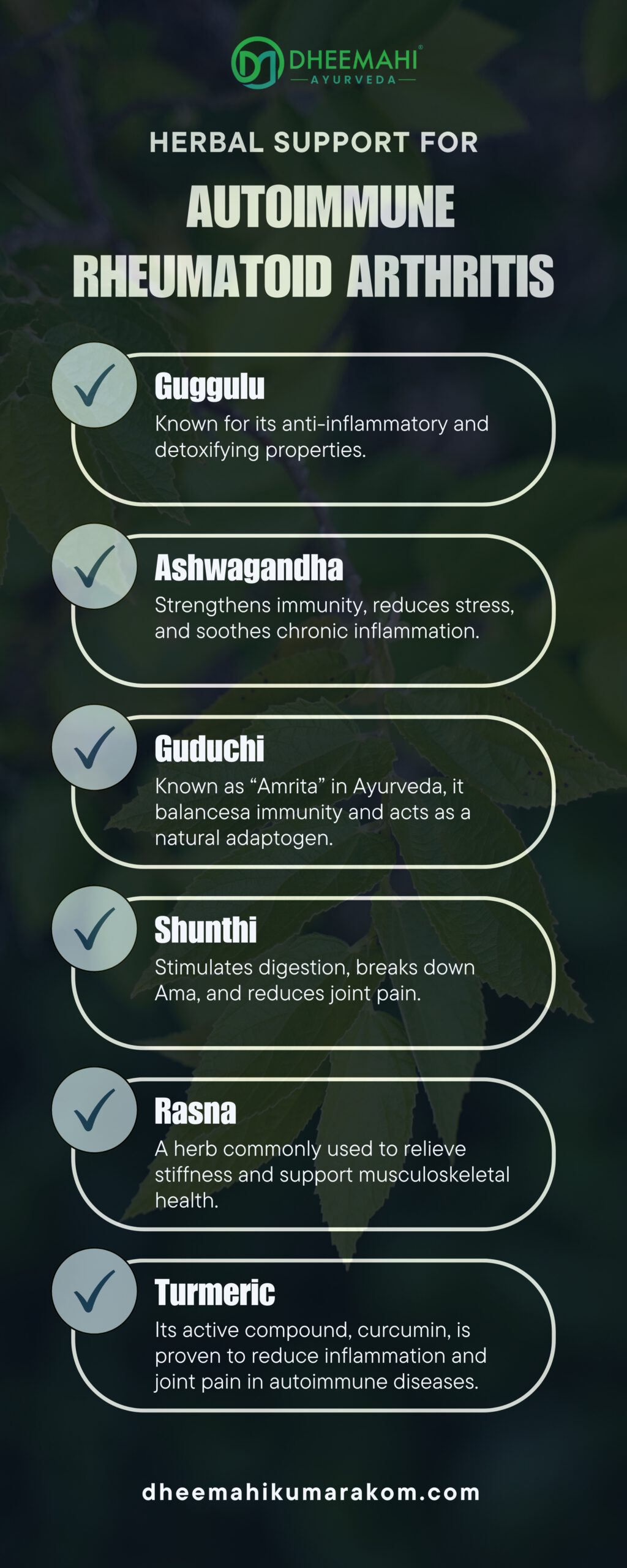Ayurveda’s Insights Into Autoimmune Driven Inflammation in Rheumatoid Arthritis
Autoimmune diseases, including rheumatoid arthritis (RA), are increasingly affecting millions worldwide. These conditions arise when the immune system, which typically protects the body from foreign invaders, mistakenly attacks healthy tissues. In the case of RA, the immune response targets the joints, causing chronic inflammation, stiffness, swelling, and pain.
While modern medicine provides relief through steroids and immunosuppressants, it often comes with long-term side effects and doesn’t address the root cause. In contrast, ayurvedic treatment for rheumatoid arthritis takes a comprehensive, root-cause-focused approach. By treating the underlying imbalance in digestion, immunity, and toxins, Ayurveda aims to relieve pain naturally and holistically.
In this article, we’ll explore how Ayurveda views autoimmune disease like rheumatoid arthritis, the causes of chronic inflammation, and the natural therapies that offer long-term results.
Understanding Autoimmune Disease in an Ayurvedic Approach
In modern medicine, an autoimmune disease is characterized by an overactive immune response where the body mistakenly attacks its own cells. RA is one such disorder that causes systemic inflammation and progressive joint damage. Symptoms often include joint stiffness, fatigue, low-grade fever, and loss of mobility.
Ayurveda refers to this condition as Amavata, which is caused by a combination of undigested metabolic toxins (Ama) and aggravated Vata dosha. Here’s how Ayurveda breaks it down:
- Ama: A sticky, toxic substance formed from incomplete digestion. It clogs bodily channels and triggers inflammation.
- Vata: The dosha responsible for movement and nerve impulses. When imbalanced, it carries Ama into the joints.
- Immune Dysfunction: Resulting from poor digestion (Agni), emotional stress, and lifestyle habits that weaken the body’s natural defenses.
Thus, ayurvedic treatment for rheumatoid arthritis doesn’t isolate the symptoms but instead works to correct the internal environment that leads to autoimmune disease in the first place.

Symptoms of Autoimmune Rheumatoid Arthritis
From both modern and Ayurvedic perspectives, the hallmark symptoms of RA include:
- Painful, swollen joints
- Morning stiffness lasting more than an hour
- Chronic fatigue
- Low-grade fever
- Loss of appetite
- Muscle weakness
- Deformities in advanced stages
In Ayurveda, additional symptoms such as heaviness in the body, indigestion, and sluggishness are red flags indicating Ama buildup. Addressing these early through Ayurvedic principles can prevent long-term joint damage and immune complications.
Causes of Chronic Inflammation in Autoimmune Disease
RA is not just a joint disease it is a systemic condition involving chronic inflammation, which plays a major role in its progression.
From an Ayurvedic perspective, chronic inflammation is due to:
- Accumulation of Ama due to weak digestion
- Imbalance in Vata and Pitta doshas
- Lifestyle habits that disturb the body’s natural rhythms
- Mental stress, which aggravates Vata and weakens immunity
- Poor dietary choices that burden the gut and immune system
These factors collectively disturb the internal balance, allowing the immune system to turn against the body. Therefore, effective management requires a holistic detox and realignment the focus of ayurvedic treatment for rheumatoid arthritis.
Panchakarma: Ayurvedic Detox for Autoimmune Rheumatoid Arthritis
Ayurveda offers Panchakarma, a five-step detoxification protocol designed to eliminate deep-rooted toxins and restore balance to the doshas. This is especially beneficial for autoimmune disease conditions like RA.
Key Panchakarma Therapies:
- Snehana (Oleation) – Application of warm medicated oils internally and externally to dissolve Ama and lubricate joints.
- Swedana (Herbal Steam) – Promotes sweating to release toxins and reduce joint stiffness.
- Virechana (Purgation) – Detoxifies the liver and colon, reducing excess Pitta and systemic inflammation.
- Basti (Medicated Enemas) – The most powerful therapy for calming Vata. Basti cleanses the colon and deeply nourishes tissues.
- Raktamokshana (Bloodletting) – Selectively used to purify the blood and reduce localized swelling in severe cases.
These therapies are personalized by Ayurvedic physicians to match the individual’s constitution, stage of disease, and digestion strength. By clearing Ama and balancing Vata, Panchakarma becomes the foundation of ayurvedic treatment for rheumatoid arthritis and other autoimmune diseases.

Herbal Support for Autoimmune Rheumatoid Arthritis
Ayurveda offers a vast pharmacopoeia of herbs that act as anti-inflammatory, detoxifying, and immune-modulating agents. These herbs are central to treating autoimmune disease at the root level.
Key Ayurvedic Herbs:
- Guggulu (Commiphora mukul) – Known for its anti-inflammatory and detoxifying properties. Used in formulas like Simhanada Guggulu.
- Ashwagandha (Withania somnifera) – Strengthens immunity, reduces stress, and soothes chronic inflammation.
- Guduchi (Tinospora cordifolia) – Known as “Amrita” in Ayurveda, it balances immunity and acts as a natural adaptogen.
- Shunthi (Dry Ginger) – Stimulates digestion, breaks down Ama, and reduces joint pain.
- Rasna – A herb commonly used to relieve stiffness and support musculoskeletal health.
- Turmeric (Curcuma longa) – Its active compound, curcumin, is proven to reduce inflammation and joint pain in autoimmune diseases.
These herbs work best when prescribed by an Ayurvedic doctor who tailors combinations based on body type (Prakriti), stage of RA, and digestive health.
Anti-Inflammatory Diet in Ayurvedic Treatment for Rheumatoid Arthritis
Food is a cornerstone of Ayurvedic healing. A personalized anti-inflammatory diet can reduce Ama, strengthen Agni, and support the immune system.
Foods to Avoid:
- Cold, heavy, or processed foods
- Deep-fried and greasy dishes
- Dairy (especially curd and cheese)
- Gluten and refined sugar
- Fermented foods and nightshades (potato, tomato, eggplant)
Foods to Include:
- Warm, freshly prepared meals
- Mung dal khichdi (light and digestible)
- Cooked leafy greens and root vegetables
- Ginger, cumin, fennel, and turmeric
- Herbal teas with coriander, cumin, and fennel
- Whole grains like barley and millets
By reducing dietary triggers of inflammation, this Ayurvedic diet enhances the effectiveness of other treatments for autoimmune disease, including RA.
Lifestyle Recommendations for RA and Autoimmune Disease
A regulated lifestyle aligned with nature’s cycles helps stabilize the body’s immune response and reduce flare-ups.
Daily Ayurvedic Routine:
- Wake up early and sleep at consistent times
- Abhyanga (Oil massage) to calm Vata and improve circulation
- Gentle yoga and pranayama to reduce stiffness and stress
- Meditation or mantra chanting to balance emotional health
- Avoid excessive exertion, cold exposure, and irregular eating habits
When practiced daily, these habits significantly improve resilience in those living with autoimmune diseases like RA.
Addressing the Emotional Roots of Autoimmune Diseases
Autoimmune diseases often have emotional roots. Anxiety, suppressed emotions, and chronic stress disrupt hormonal balance and immune health. Ayurveda places great emphasis on emotional wellness.
Ayurvedic Practices for Mental Balance:
- Shirodhara (Oil therapy on the forehead) to relax the mind
- Nasya (Nasal oil application) for clarity and stress relief
- Brahmi and Jatamansi – calming herbs that stabilize the nervous system
- Meditation and Pranayama – reduce cortisol and enhance immune regulation
Holistic healing from RA and other autoimmune diseases is incomplete without addressing the emotional and psychological layers of health.
Rasayana Therapy: A Rejuvenation Therapy for RA
After detoxifying the body and calming inflammation, Ayurveda focuses on Rasayana Chikitsa, or rejuvenation therapy. This phase rebuilds tissue strength, enhances immunity, and prevents recurrence.
Rasayana Therapies:
- Herbal jams like Chyawanprash
- Immunity-boosting tonics like Amalaki and Shatavari
- Nutrition-rich, warm, and sattvic (pure) diet
- Deep sleep and positive thinking
- Customized yoga and breathing routines
This final stage ensures that the benefits of ayurvedic treatment for rheumatoid arthritis last long-term and help prevent other autoimmune diseases from taking root.
Why Choose Ayurveda for Autoimmune Rheumatoid Arthritis?
Ayurveda doesn’t just treat symptoms it transforms the internal ecosystem of the body. When it comes to autoimmune diseases like RA, this means addressing digestive fire, mental state, and immune intelligence simultaneously.
Key Benefits of Ayurvedic Care:
- Natural detox without harsh drugs
- Sustainable pain relief and joint rejuvenation
- Personalized approach based on your body constitution
- No long-term side effects
- Immune system re-education rather than suppression
If you’re looking for a long-term, root-cause-focused approach to autoimmune rheumatoid arthritis, Ayurveda offers a time-tested and holistic solution.
Conclusion
Autoimmune diseases like rheumatoid arthritis require more than symptom management. They demand a reset of the entire body-mind system. Ayurvedic treatment for rheumatoid arthritis offers just that by purifying the body, restoring digestive strength, calming the nervous system, and rejuvenating the joints and immunity.
Through Panchakarma, herbal medicine, personalized diet, and lifestyle changes, Ayurveda empowers you to regain control over your health – naturally and holistically. Whether used alone or alongside conventional treatment, Ayurveda provides a safe and effective path for healing autoimmune inflammation from its roots.
Begin your journey to wellness with expert guidance in holistic Ayurvedic care, tailored treatments, and natural healing solutions
How Our Booking Process Works
The unique approach involves a series of discussion during your initial decision-making process to make sure that we will be able to match your expectations with our treatment.
Based on the discussions with you our team of expert doctors will design the best treatment package personalized for your needs.
01
Consultation Form
Fill out our consultation form, and let us know when will you be available for our doctor to talk to you
02
Discussion with Doctor
Discuss your health condition and expectations with our doctor.
03
Booking Confirmation
Confirm the booking by making a payment of 50% advance.
Consultation Form
Submit this form to initiate a booking with us
Have any queries? We will help you. Talk to us now
Say Goodbye to Health Woes & Hello to Healthy Living
Dheemahi Ayurvedic Pvt Ltd
12/386 Varaputhara Road
Kumarakom, Kerala, India
Pin 686563
Dheemahi Ayurvedic Centre, Near Neelimangalam Bridge, Kumaranaloor, Perumbaikad.P.O, Kottayam, Kerala, India, Pin 686016
Other Treatments
Karkidaka Chikilsa | Ayurvedic Treatment for Depression | How to Reduce Stress Naturally | Autoimmune Disorders | Mental Health Ayurvedic Treatment | Weight-Loss Treatment | Frozen Shoulder Ayurvedic Treatment | Diabetes Ayurvedic Treatment | PCOS Ayurvedic Treatment | Celiac Disease Treatment | ayurvedic treatment for skin diseases | nervous system ayurvedic treatment | Back Pain Ayurvedic Treatment | Cervical Spondylitis Ayurvedic Treatment | ayurvedic treatment for blood sugar | Fatty Liver Ayurvedic Treatment | Knee Pain Ayurvedic Treatment | Migraine Ayurvedic Treatment | Osteoarthritis Ayurvedic Treatment | Psoriasis Ayurvedic Treatment | Sinusitis Ayurvedic Treatment | Ayurvedic Detox Treatment | Migraine Ayurvedic Treatment | Ayurvedic Treatment for Rheumatoid Arthritis | Ayurvedic treatment for joint pain | Ayurvedic treatment for ulcerative colitis | Panchakarma Treatment |
